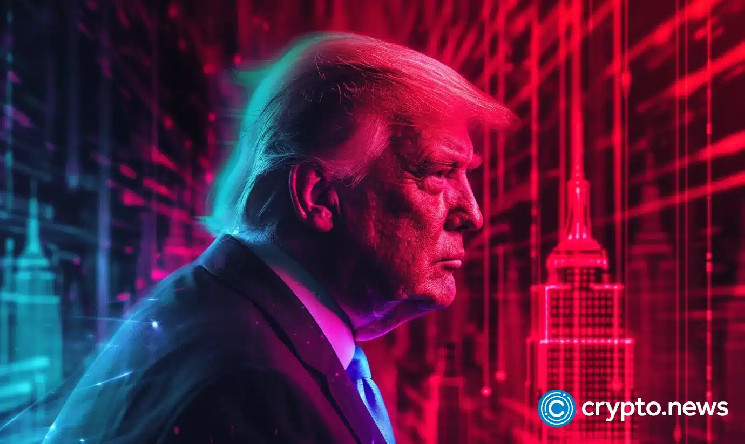Temasek, a Singaporean investment firm, shows concerns over the potential impact of Donald Trump’s presidential victory on the global economy.
According to a Bloomberg report, Temasek’s chief investment officer, Rohit Sipahimalani, argues that while Trump may appeal to markets due to his stances on tax cuts and deregulation, his policies could strain international growth in the long term.
With the U.S. presidential election coming up in a week, Sipahimalani suggests that Trump’s policies could hinder both U.S. and global companies, especially those with extensive overseas operations.
The Bloomberg report indicates that Temasek’s assessment contrasts with some pro-Trump investor sentiment. Notably, Standard Chartered recently predicted a Bitcoin (BTC) rally to $125,000 if a Republican government takes charge.
Although many see him as beneficial for stocks and Bitcoin, Sipahimalani believes that a Trump victory may strengthen the U.S. dollar and raise interest rates, which would impact emerging markets unfavorably.
Trump’s trade policies, including tariffs, are also a source of concern for Temasek, as such measures often introduce uncertainty that could deter global investment.
Notably, the GOP candidate has capitalized on the regulatory uncertainty surrounding the crypto market in the U.S. He promised to help bolster the industry’s growth by enacting policies such as retaining the country’s BTC holdings and firing the Securities and Exchange Commission Chair Gary Gensler.
You might also like: Hong Kong’s ZA Bank begins sandbox pilot of crypto trading service
Meanwhile, Elon Musk, an avid supporter of Trump, recently suggested that he would reduce U.S. federal spending by at least $2 trillion annually if Trump wins.
Musk, speculated to be absorbed into a cabinet role by Trump, believes that major budget cuts would streamline government spending and boost economic stability.
His stance aligns with Trump’s vision of economic reform, including potential tariffs to increase revenue, despite economists’ warnings that these could raise costs for U.S. households.
On the other side, Sipahimalani says Kamala Harris’s policies could benefit emerging markets. Some business leaders, including Mark Cuban, argue that Harris’ approach might better support growth in innovation-driven sectors, particularly green tech and healthcare.
However, the Democratic nominee has failed to specify her plans for emerging markets such as crypto.
Despite this, Cuban has expressed confidence in the potential for a Harris administration to stabilize and boost innovation in these areas.
Temasek’s caution shows its focus on global economic stability and the potential ripple effects of U.S. policies. With its recent plans to invest $30 billion in the U.S., the firm sees the importance of U.S. policy on international markets.
However, it warns that significant “tail risks” could surface in the coming years, depending on the election outcome, possibly creating turbulence for global investors and businesses.
Read more: CryptoQuant: Bitcoin’s institutional demand sky explodes in 2024

